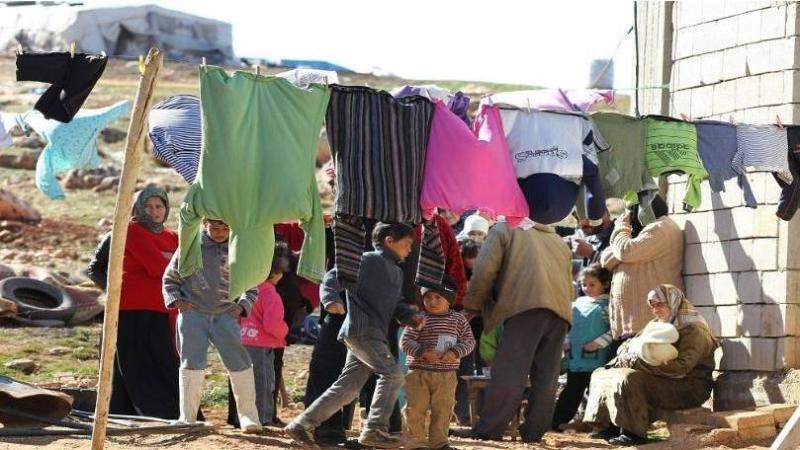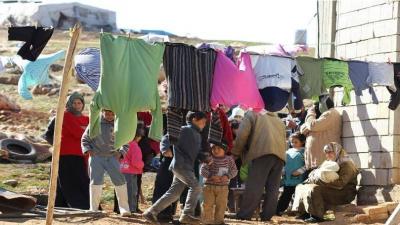The unprecedented tripartite meeting between the defense ministers of Russia, Turkey, and Syria in Moscow last week has altered the regional scene and what developments it might bring concerning the Syrian crisis at all levels. The meeting has revived the issue of Syrian refugees, noting that the three countries, along with Iran, were involved in the Astana process, during which the refugee issue was obviously present. However, no clear outcome has emerged from the discussions about this file. Will there be any new developments today?
Before answering, it's helpful to revisit the Russian initiative in 2018, which generated significant media attention but did not translate into action for various reasons, the most significant being military considerations. It is important to spotlight the Qalamoun, Zabadani, and Qsair areas, which have seen a full halt to hostilities since 2015 and from which the residents have fled. The Russians believed they could use these areas to facilitate the return of about 500,000 displaced individuals who now mostly reside in bordering areas like Arsal and Akkar. To this end, they sent a police unit to the region in mid-2018 in an attempt to establish a presence along the Lebanon-Syria border, but clashes occurred with the local forces, particularly Hezbollah, leading to the Russians' withdrawal.
Is there any new incentive for Russia to prioritize the return of the displaced today? Expert in public policy and refugee issues Ziad Al-Sayegh noted that "there is a paralysis in the Russian dynamics to facilitate the return of displaced individuals to the Qalamoun, Zabadani, and Qsair areas, as well as to other regions, due to the existing realities on the ground," pointing out that "there is no feasibility to operationalize the refugee issue in the Russian-Syrian-Turkish tripartite meetings, as this file is not a priority for Moscow today."
But what about Damascus’s stance? Al-Sayegh responds in an interview with MTV: "The Syrian regime claims that it welcomes the return of the displaced and wants to bring them back, but at the same time, it has enacted a range of laws and regulations, from land confiscation under Law No. 10 and others, which do not help or encourage facilitating their return."
He noted that the Lebanese General Security has established an excellent mechanism for refugees' return and was in communication with the UN High Commissioner for Refugees. The mechanism involved submitting lists of names to the Syrian side for approval, where some individuals would be rejected while others accepted. This raises questions regarding the practical facilitation from Damascus, despite the statements being issued.
Regarding Turkey's position, Al-Sayegh points out that Ankara has naturalized around 1.3 million Syrian refugees since the start of the Syrian war, which also raises questions about the seriousness of efforts to return the rest; otherwise, why would they have granted them citizenship? He adds, "While the refugee issue is part of the European-Turkish agreement on migration and asylum, the Europeans annually provide the Turks with billions of euros as part of the Turkish-European deal on burden-sharing. Therefore, I doubt that the return of the displaced is a priority for the Turks today."
If the regional or international climate is uninterested, where is Lebanese diplomacy? Al-Sayegh replies: "It's nonexistent… All there is, is whining and accusations against the international community for working towards resettlement, among other things. But where are the solutions that Lebanon brings to the table? Instead of Lebanese diplomacy taking effective steps towards the Geneva process and placing the refugee issue on the table, it adopts an accusatory approach towards the international community, which has failed to achieve a political solution in Syria, leading to significant delays in the return of the displaced. However, this doesn’t mean we should submit to this failure; rather, we should advocate for an international regional dynamic to assist us in the return of the displaced, but within the standards of the United Nations and in coordination with it, rather than the populist approach currently being taken in Lebanon, especially in the absence of a public policy since 2012."
Has Lebanon fulfilled its duty, especially since it approved a public policy in 2021? Al-Sayegh believes, "This public policy carries both the issue and its opposite; the international community is obliged to assist us, but Lebanon must also do its part and lay out a realistic public policy regarding the displaced, not as happened recently with the public fallout between the ministers of social affairs and displaced persons. The scientific voice, not the political one, is required to address this significant economic, social, and demographic issue."
The file has become a heavy burden on the country, and with the intensification of the economic crisis in Lebanon and its serious social repercussions, the issue of displacement becomes a ticking time bomb threatening something worse. Unfortunately, the current official Lebanese approach remains inadequate in addressing this crisis, just as it was at its onset.




